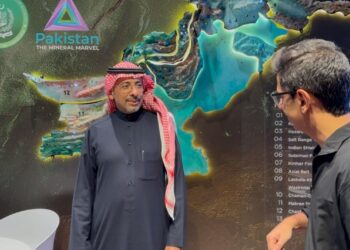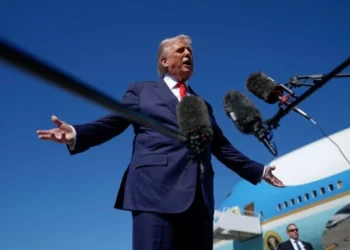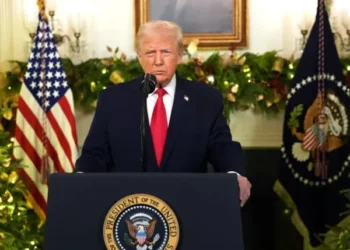A Global Outcry Over the Targeting of Media Workers
The killing of five journalists, including the prominent Al Jazeera correspondent Anas Al-Sharif, in an Israeli airstrike on Gaza has sparked a wave of condemnation from governments, international organizations, media watchdogs, and human rights groups across the globe. The attack, which occurred in front of Al-Shifa Hospital, has been described as a grave violation of international humanitarian law and a chilling example of the dangers journalists face while reporting from conflict zones.
Pakistan, Qatar, Britain, Iran, the United Nations, Amnesty International, Human Rights Watch, Reporters Without Borders, and the Committee to Protect Journalists have all publicly condemned the strike, urging accountability and demanding justice for the victims. The outrage underscores a growing concern over the systematic targeting of journalists in Gaza since the escalation of hostilities in October 2023.
Pakistan’s Strong Response and Call for Accountability
Pakistan’s Ministry of Foreign Affairs issued a strongly worded statement condemning the killing of the journalists, calling it unacceptable and in violation of the Geneva Conventions. The statement urged the international community to take immediate and concrete measures to ensure the safety of civilians, especially journalists who are performing their professional duty of informing the world about the realities of the war.
Pakistan also demanded that Israel be held accountable at relevant international forums, such as the International Criminal Court (ICC) and the United Nations Security Council. Officials in Islamabad stressed that the targeting of journalists is not only a direct attack on press freedom but also an attempt to silence the truth about the humanitarian crisis unfolding in Gaza.
Qatar’s Prime Minister Calls It an “Unimaginable Crime”
Qatar, home to Al Jazeera’s headquarters, reacted sharply to the killing of Anas Al-Sharif, who had been reporting extensively on the devastation in Gaza since the start of the conflict. Qatari Prime Minister Sheikh Mohammed bin Abdulrahman Al Thani described the incident as an “unimaginable crime”, expressing deep sorrow for the loss of life and condemning what he called the deliberate targeting of journalists.
Qatar has been among the most vocal countries in highlighting Israeli violations of international law and has repeatedly called for an immediate ceasefire in Gaza. The Qatari government also reiterated its demand for an independent international investigation into the deaths of journalists and other civilians.
The United Nations Raises Alarming Statistics
The United Nations Office of the High Commissioner for Human Rights (OHCHR) expressed grave concern over the rising number of journalists killed in Gaza. A UN spokesperson revealed that at least 242 Palestinian journalists have lost their lives since the conflict escalated in October 2023. This figure is unprecedented in modern conflicts and has raised alarm bells within the global media and human rights community.
The UN emphasized that journalists are classified as civilians under international humanitarian law and are entitled to the same protections as other civilians. Any deliberate targeting of them constitutes a war crime under the Rome Statute of the International Criminal Court.
Amnesty International and Human Rights Watch Demand Investigations
Amnesty International dismissed Israeli claims that the journalists were linked to militant groups, calling such allegations “baseless and unsubstantiated.” The organization stressed that all parties to a conflict have a legal obligation to protect civilians and those engaged in journalistic activities, regardless of political affiliations or nationality.
Similarly, Human Rights Watch (HRW) stated that Israel’s actions appear to be part of a pattern of attacks on press freedom in Gaza. HRW called for an independent and impartial investigation, preferably under the auspices of the United Nations Human Rights Council, to determine whether these killings constitute war crimes.
Reporters Without Borders and the Committee to Protect Journalists Speak Out
Reporters Without Borders (RSF) labeled the killings as “the most deadly attack on journalists in recent memory.” RSF noted that the sheer number of media professionals killed in Gaza highlights the extreme dangers faced by those covering the conflict. The group also called on the International Federation of Journalists (IFJ) and other press freedom organizations to unite in demanding justice.
The Committee to Protect Journalists (CPJ), which keeps a detailed database of journalists killed worldwide, reiterated that Gaza has become “the most dangerous place in the world for journalists.” CPJ stressed that repeated strikes near hospitals, press tents, and other known media gathering spots indicate a reckless disregard for the safety of media workers.
Details of the Deadly Airstrike
According to Al Jazeera, the journalists were killed when an Israeli airstrike hit a tent set up in front of Al-Shifa Hospital, Gaza’s largest medical facility, which has been a focal point for both civilians seeking shelter and reporters covering the ongoing crisis.
The victims included:
- Anas Al-Sharif – Veteran Al Jazeera correspondent known for his fearless frontline reporting.
- Muhammad Qarqiya – Cameraman working with local news outlets.
- Ibrahim Zahir – Freelance photojournalist documenting the humanitarian crisis.
- Muhammad Nofal – Local reporter covering health and humanitarian issues.
- A colleague whose identity has not yet been released.
In addition, local freelance reporter Muhammad Al-Khalidi was also killed in a related strike nearby.
Eyewitnesses reported that the journalists were wearing clearly marked press vests and helmets at the time of the attack, making their identities as media personnel unmistakable.
Press Freedom Under Siege in Gaza
Since the escalation of violence in Gaza, journalists have faced unprecedented challenges. Many have been forced to work without proper protective equipment, often in areas with no safe zones. Newsrooms have been destroyed, communications infrastructure has been targeted, and several media offices have been reduced to rubble.
International media experts argue that the targeting of journalists hampers the world’s ability to receive accurate and independent reporting. Without reporters on the ground, misinformation and propaganda can fill the void, leading to a skewed understanding of the conflict.
International Humanitarian Law and the Protection of Journalists
Under the Fourth Geneva Convention and Additional Protocol I, journalists are considered civilians during armed conflicts and must be protected from attacks, unless they are directly participating in hostilities. Any deliberate killing of journalists is a violation of these conventions and may constitute a war crime.
Legal experts note that attacks on journalists in Gaza should be urgently referred to the International Criminal Court, which has the jurisdiction to investigate war crimes committed in the occupied Palestinian territories.
Global Pressure for Action
The killing of the five journalists has added to the growing international pressure on Israel to halt military actions that disproportionately affect civilians. Several countries have already announced their intention to raise the matter in UN forums, while human rights groups are compiling evidence to present to international judicial bodies.
Diplomatic sources say that Pakistan, Qatar, Turkey, South Africa, and several Latin American countries are considering a joint resolution at the UN General Assembly demanding immediate protection for journalists in conflict zones.
Conclusion: A Critical Moment for Press Freedom
The deaths of Anas Al-Sharif and his colleagues have once again underscored the deadly risks faced by journalists in war zones. The incident has become a rallying point for those advocating for greater protections for media workers, not only in Gaza but in all conflict areas worldwide.
As the international community’s condemnation grows louder, the demand for accountability becomes more urgent. Whether the calls for justice will lead to concrete action remains to be seen, but one thing is certain: the killing of journalists is not just an attack on individuals—it is an attack on truth itself.

























